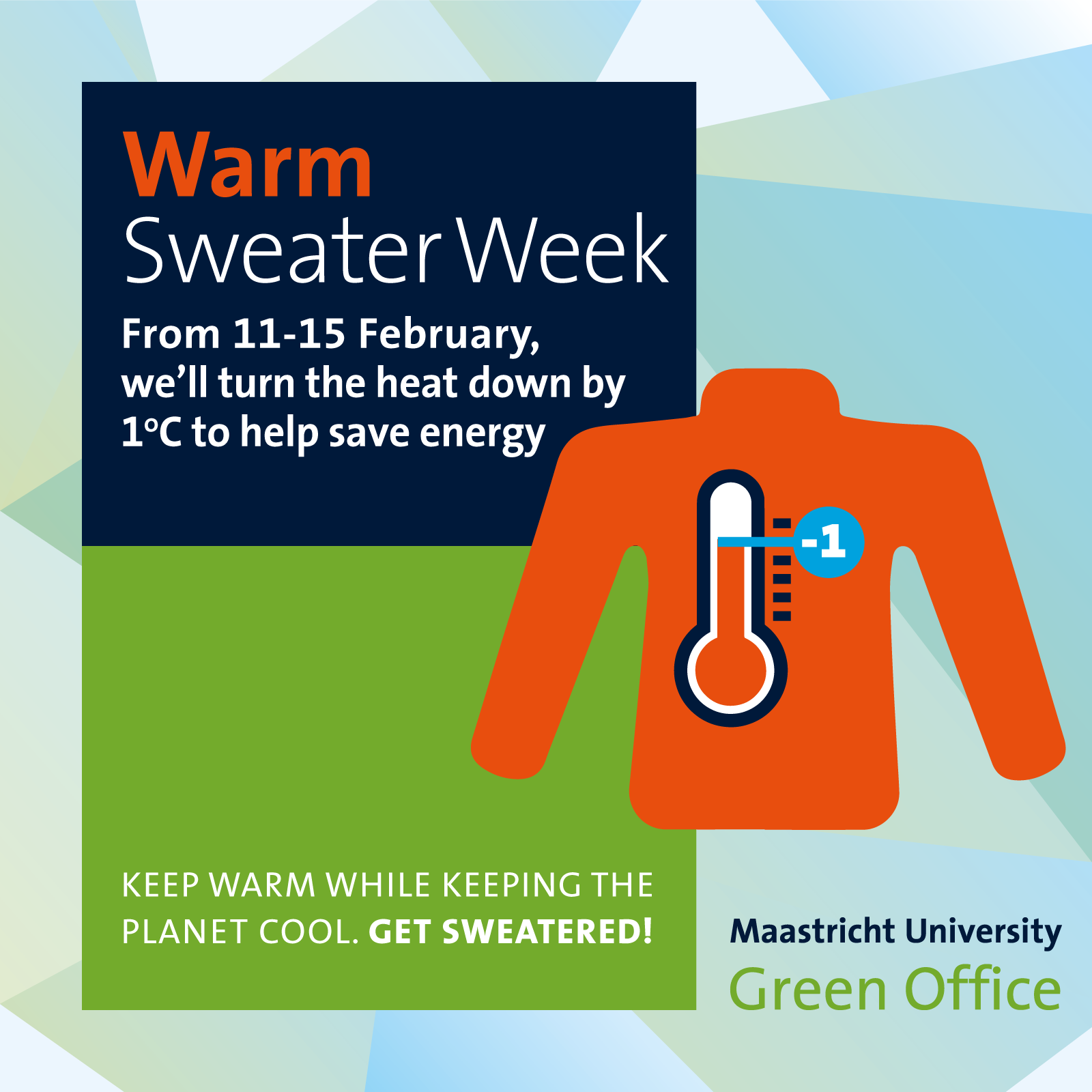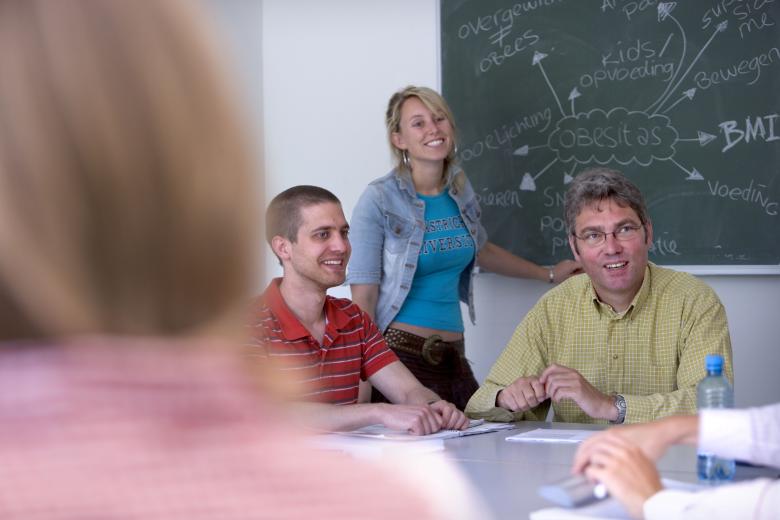Evaluating the Warm Sweater Week 11-15 February 2019
February 15th was the National Warm Sweater Day. All over The Netherlands more than 200.000 people participated by turning down the heat by 1 degree.
At Maastricht University a majority of its buildings participated during the whole week. We want to thank all of you for bearing with us! We got lots of reactions spanning from “Please do this during the whole year” to “I had to wear my coat to work”. Sometimes the working conditions were really unbearable.
What we have learned
First of all, it was clearly not our intention to compromise working conditions at UM. Fortunately in a lot of instances facility services could solve heating issues during that week right away. But still some issues could not be solved instantly and some were simply reported too late. We are very sorry for the staff members that suffered because of that. Again, we want to thank you for your patience and your feedback.
Because if we have learnt one thing, it is that there is a need for technical improvements. A number of previously unknown cold spots has been identified, that can be tackled with relatively simple measures. A known issue is that some buildings are poorly insulated. Many of UM’s buildings have a monumental status, which means improving insulation is a complex and costly matter and requires custom made solutions.
Our conclusion is that some buildings are not yet fit for Warm Sweater Week. We are now actively looking for more cooperation throughout the whole UM to improve the working environment and with that also improve the energy use at several locations. We will keep you up to date about these developments. In the coming weeks we will come back to you with the exact calculations of what we as the UM community have saved in CO2-emissions because of the Warm Sweater Week. Because together we did save a lot!
Working Group Warm Sweater Week

Also read
-
A strong education network for Brabant and Limburg: better alignment, less dropout
On November 24, 2025, secondary schools (VO) and higher education institutions (HO) in Brabant and Limburg will sign up for the Education Network South Netherlands: one VO-HO network that will improve the flow of students to further education and reduce dropout rates.

-
Andrés Caceres Solari on No room for Human Rights in Gaza and Ukraine: How the Law Legitimizes Urban Devastation
Pick Our Brains Session with Andres Caceres Solari

-
AMIBM hosts the final Realise-Bio conference
The Aachen Maastricht Institute of Biobased Materials (AMIBM) hosted last week the third and final Realise-Bio annual conference, bringing together the Dutch and German bioeconomy ecosystems at the Brightlands Chemelot Campus.
